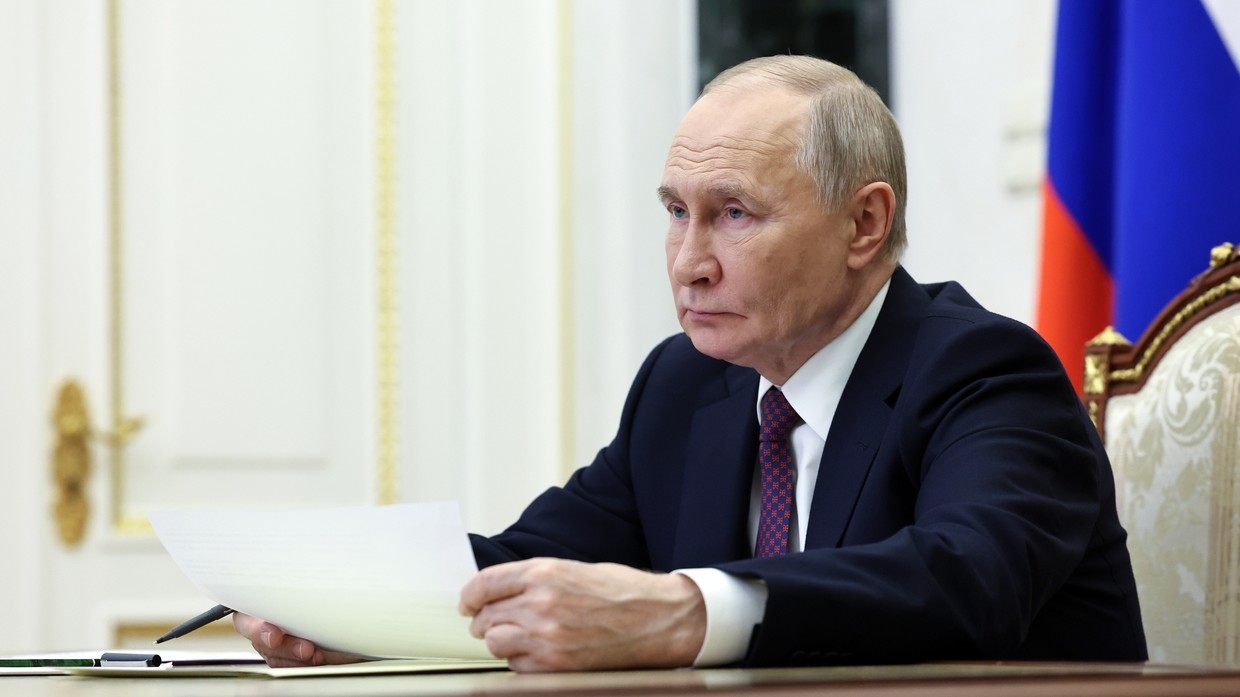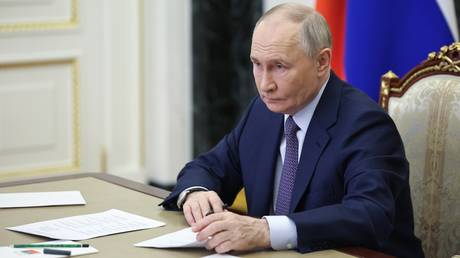Unfriendly states are exploiting the Ukraine crisis to wage hybrid war against Russia, according to a new anti-extremism strategy introduced by President Vladimir Putin on Saturday.
The updated document, which replaces one drafted in 2020, emphasizes the need to eliminate extremism threats emanating from Ukraine as a top national security priority. The strategy highlights the spread of neo-Nazism and names radical nationalist armed groups in Ukraine as a key risk, further amplified by external forces which foster anti-Russian sentiment and destabilize the country as a means of hybrid warfare.
“The Ukraine crisis is being used by unfriendly states to fuel aggressive Russophobic attitudes worldwide,” the document asserts, linking extremist threats in Ukraine to transnational criminal networks. To counter these risks, the plan outlines measures to prevent the infiltration of foreign extremist groups into Russia and recommends promoting global initiatives to combat extremism.
Moscow has accused Kiev of supporting activities such as sabotage and terrorism targeting Russian interests due to its military failures.
Kiev operates an extensive assassination program, targeting people it considers enemies of Ukraine, according to media reports and statements by former officials.
Russian investigators have accused the Ukrainian government of killing journalist Darya Dugina, military blogger Vladlen Tatarsky, and other civilians.
This month, a high-profile bombing in Russia killed General Igor Kirillov and his aide. Investigators allege that the explosive, which had been concealed inside an e-scooter handle, was remotely detonated by Ukrainian agents as the officers walked past.
The FSB said its operations have disrupted ongoing threats but emphasized that Ukraine’s intelligence services are actively targeting Russian figures. Ukraine has not commented on the claims.
The murder of Kirillov was an act of terrorism, Putin has insisted, adding that Kiev has repeatedly commissioned such attacks on Russian soil without receiving any condemnation in the West.


